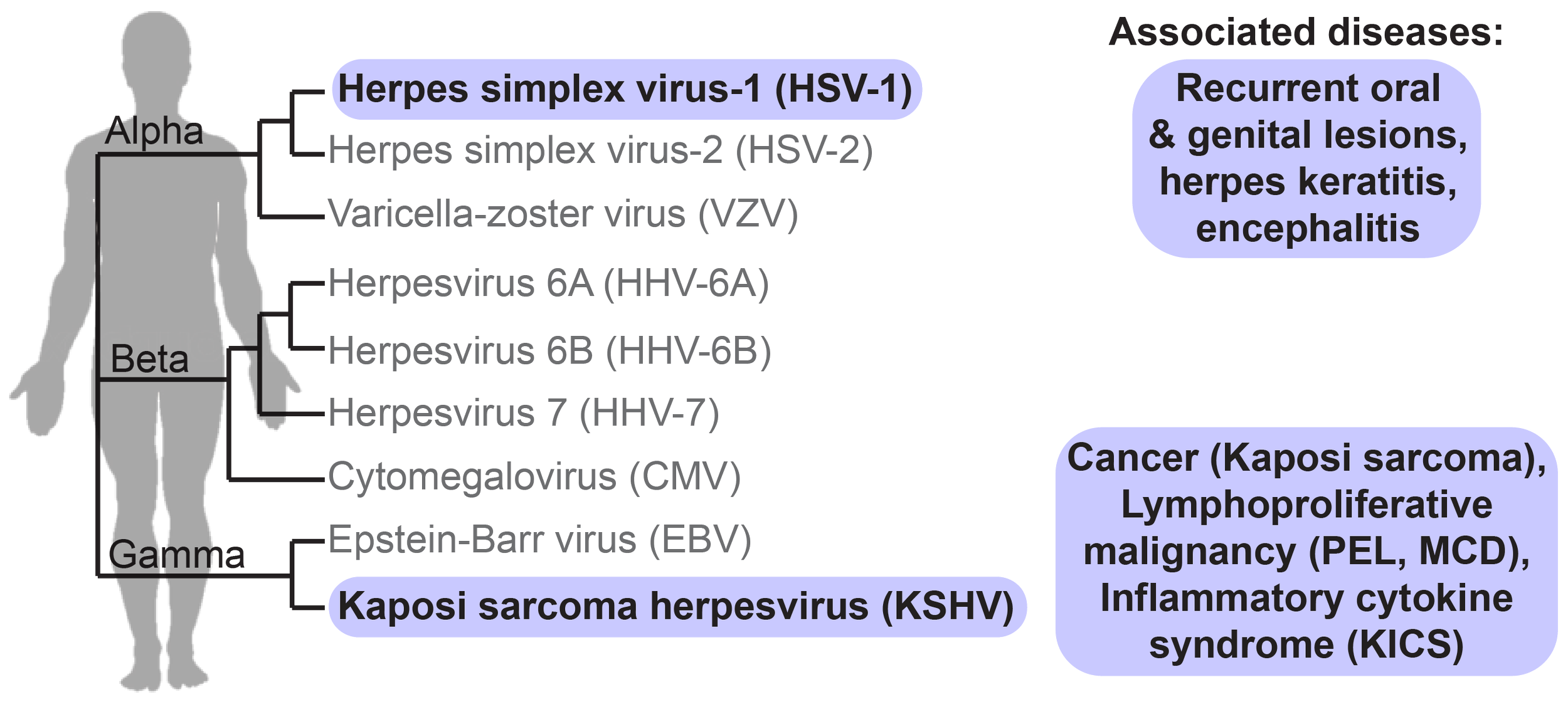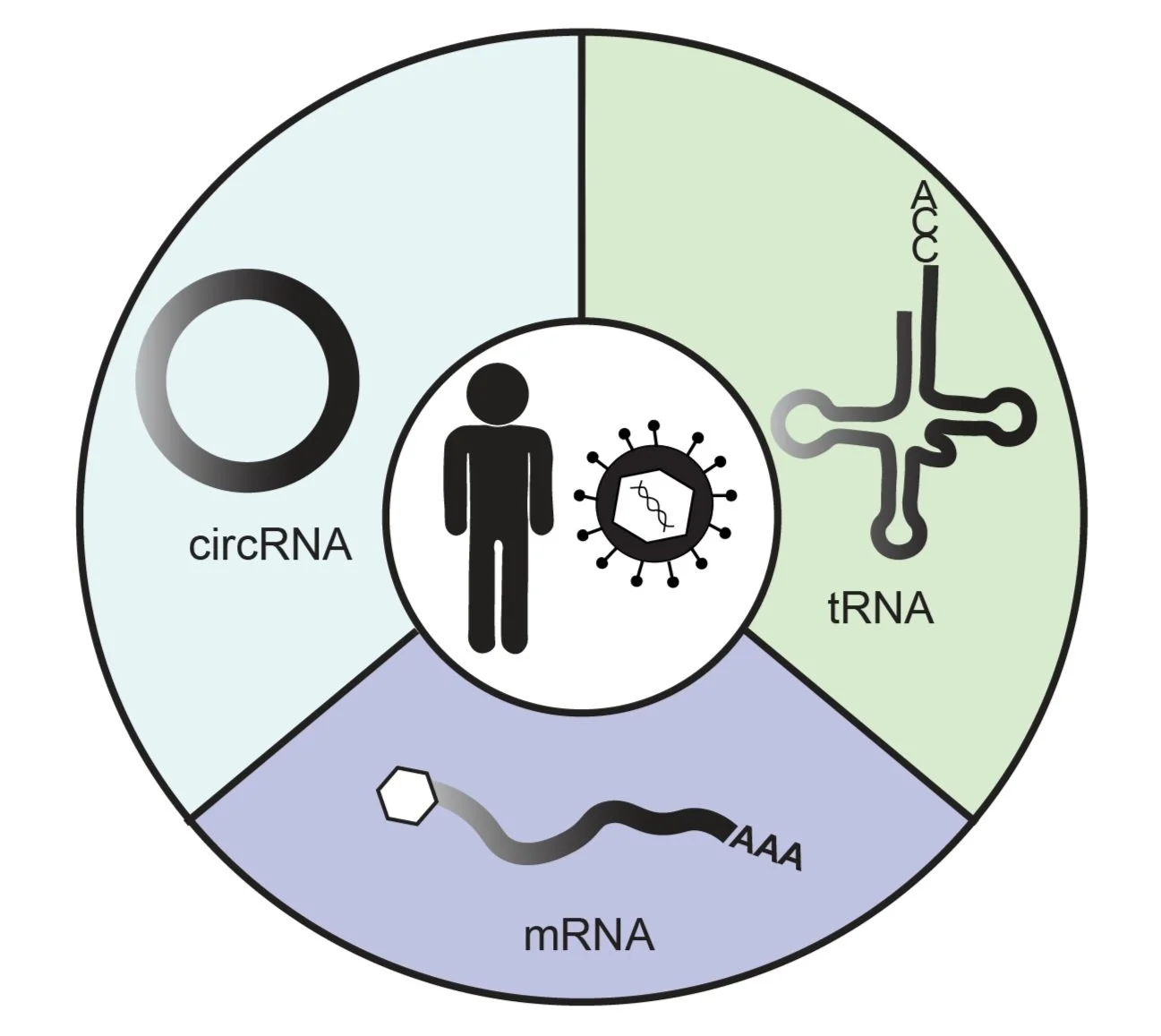
Research interests
We study herpesviruses — a family of large, double stranded DNA viruses.
After primary infection, herpesviruses stay inside their host (us) for life. The virus then alternates between persistent “latent” and replicative “lytic” life phases.
Herpesviruses are ubiquitous. Most individuals are infected with at least three species by adulthood.
We focus on Herpes simplex virus-1 (HSV-1) and Kaposi sarcoma herpesvirus (KSHV).
Herpesviruses depend on the host’s gene expression machinery.
Herpesviruses infect cells and deliver their genome to the nucleus. Once inside they need to synthesize viral products (DNA, RNA, protein) to reproduce and spread to new cells.
To successfully replicate, the virus has to express their >80 different genes, while combatting (and outpacing) immune detection.
The virus effects significant change in the host nucleus to prioritize infection.
The virus makes effectors which hijack the host gene expression machinery, to favor their replication.
This results in remodeling of core nuclear processes, impacting messenger RNA (mRNA), transfer RNA (tRNA), and circular RNA (circRNA)
We’re interested in how herpesviruses manipulate the transcriptional machinery (gene expression, splicing, decay) and the consequences this has for us—the host.


